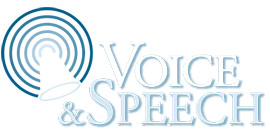Transcript
Have you ever been in a situation where someone’s telling a story and he goes on for so long you can’t even remember what the story’s about? Have you ever been in a meeting where someone gets a question and her response is so long-winded you have no idea what she just said?
Rambling and making things too complicated can be the kiss of death in your social life and have serious consequences for your professional interactions. Listeners get confused, bored and frustrated. Executives are constantly complaining, “My people can’t get to the point!” Are you one of those people?
Why can’t you be more concise? One reason is a lack of preparation and practice. You might know the subject like the back of your hand but that doesn’t mean you’re ready to express it clearly and concisely, out loud. That assumption is a common trap and a rookie mistake.
Trying to cover too many details in a short period of time becomes confusing. Just because the details are important to you doesn’t mean your listeners need to hear them, and they’re useless if they obscure the main point.
Finally, talking too fast makes it difficult to formulate clear concise messages. You have less time to think clearly, so you substitute quantity for quality, and your listeners get lost in a blur of words.
Here are some strategies for being more concise.
Be prepared. Anyone can drone on for half an hour. It takes forethought to be brief and to the point. If you know you’ll be speaking, make some notes. Consider what questions might be directed to you and how you would answer. It takes practice to communicate your expertise clearly and concisely.
Consider your audience. What do they already know? What would be nice for them to know, but not critical? What do they absolutely need to know at this stage? Give them the essentials necessary for them to do their job effectively. Stick to those core points without getting into needless detail. If they have questions, they will ask.
Think before speaking. Take a breath and consider the main point. State that point, then elaborate if necessary. If you just open your mouth and start talking you’re bound to create confusion.
Be deliberate. Control the pace of your delivery. Take your time and speak in short phrases. It gives you time to consider what you’re about to say, and your listeners time to process what you just said.
The ability to say much with few words is worth its weight in gold. Yes, it takes practice and some experience, but it’s a powerful skill that will serve you in every area of your life, for the rest of your life. Being concise enables you to speak with clarity, confidence and gives you credibility. People will seek out, anticipate and value your contribution.
Thanks for watching. Subscribe if you’d like to see more videos related to voice and speech, and I’d love to see comments about your experience with rambling and learning to be concise.
Concise Communication Skills
Your ability to be concise and to the point is an important part of strong communication skills. Rambling and getting into too many details confuses and frustrates your listeners and makes you less credible as a speaker. The ability to communicate clearly and concisely will enhance your image and earn the respect of your friends and colleagues. Here are four strategies to help cultivate concise communication skills.


